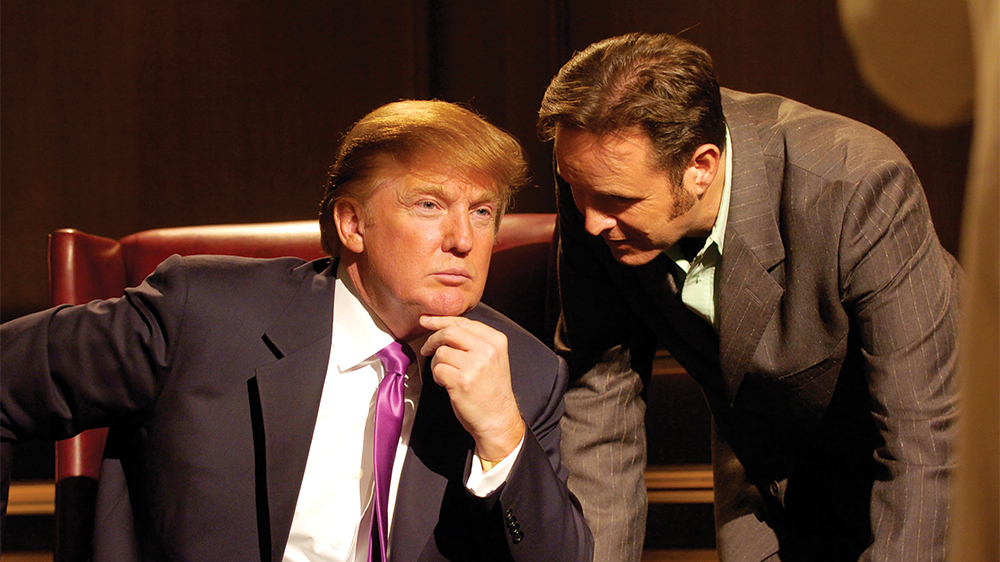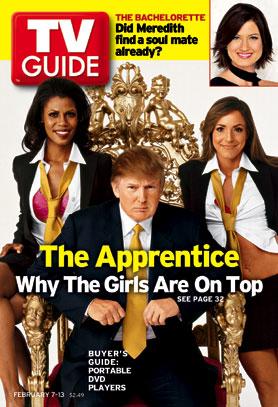Mark Burnett, the reality-television producer behind the blockbuster hits Survivor and The Apprentice, has been called the man who made Donald Trump’s presidency possible.
As a new profile of him in the New Yorker describes it, in making The Apprentice, which aired from 2004 to 2017 and starred Trump as the king of a corporate jungle for the first 14 seasons, Burnett turned Trump, a onetime “garish figure of local interest—a punch line on Page Six” into “an icon of American success.”
Indeed, with some carefully calibrated camera angles and smart editing, Trump became a powerful and revered figure in the eyes of many viewers.
The show fetishized what appeared to be Trump’s wealth, even when it was widely known that Trump had endured several bankruptcies.
The article takes us behind the curtain of Trump’s TV career, drawing parallels between the rise of The Apprentice and the rise of Trump the politician.
For instance, the show’s producers would have to rework an episode whenever Trump “fired” a candidate without warning.
To create a narrative that made sense to the audience, the editors would go back through the tape looking for moments with the cast-off candidate that might look like missteps.
One former editor of The Apprentice said, “I find it strangely validating to hear that they’re doing the same thing in the White House.”
“The Apprentice” portrayed Trump not as a skeezy hustler who huddles with local mobsters but as a plutocrat with impeccable business instincts and unparalleled wealth—a titan who always seemed to be climbing out of helicopters or into limousines.
“Most of us knew he was a fake,” said Jonathan Braun, a former editor on the show.
“He had just gone through I don’t know how many bankruptcies. But we made him out to be the most important person in the world. It was like making the court jester the king.”
Bill Pruitt, another producer, recalled, “We walked through the offices and saw chipped furniture. We saw a crumbling empire at every turn. Our job was to make it seem otherwise.”
A standout contestant in Season 1 was Kwame Jackson, a young African-American man with an M.B.A. from Harvard, who had worked at Goldman Sachs.
“Fran Lebowitz once remarked that Trump is a poor person’s idea of a rich person,” and Jackson was struck, when the show aired, by the extent to which Americans fell for the ruse.
“Main Street America saw all those glittery things, the helicopter and the gold-plated sinks, and saw the most successful person in the universe,” he recalled. “The people I knew in the world of high finance understood that it was all a joke.”
This is an oddly common refrain among people who were involved in “The Apprentice”: that the show was camp, and that the image of Trump as an avatar of prosperity was delivered with a wink.
Somehow, this interpretation eluded the audience.
Jonathon Braun marveled, “People started taking it seriously!”
The show was an instant hit, and Trump’s public image, and the man himself, began to change.
Not long after the premiere, Trump suggested in an Esquire article that people now liked him, “whereas before, they viewed me as a bit of an ogre.”
Jim Dowd, Trump’s former publicist, told Michael Kranish and Marc Fisher, the authors of the 2016 book “Trump Revealed,” that after “The Apprentice” began airing “people on the street embraced him.”
Dowd noted, “All of a sudden, there was none of the old mocking,” adding, “He was a hero.”
Dowd, who died in 2016, pinpointed the public’s embrace of “The Apprentice” as “the bridge” to Trump’s Presidential run.

